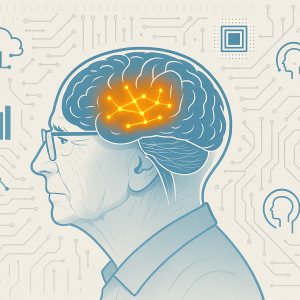 Overview: Cognitive function refers to the mental processes that allow individuals to process, understand, and interact with the world around them through abilities such as language, memory, perception, and reasoning. As individuals undergo normal aging, some aspects of cognitive function such as processing speed and memory may decline. However, cognitive function is more strongly impacted in individuals with Alzheimer’s disease and other neurological conditions. Substantial declines in cognitive function can lead to loss of independence for older adults, as well as increased social isolation. AI and sensing device technologies present a new frontier for assisting and augmenting cognitive function with the aim of supporting older adults’ ability to continue to age in place.
Overview: Cognitive function refers to the mental processes that allow individuals to process, understand, and interact with the world around them through abilities such as language, memory, perception, and reasoning. As individuals undergo normal aging, some aspects of cognitive function such as processing speed and memory may decline. However, cognitive function is more strongly impacted in individuals with Alzheimer’s disease and other neurological conditions. Substantial declines in cognitive function can lead to loss of independence for older adults, as well as increased social isolation. AI and sensing device technologies present a new frontier for assisting and augmenting cognitive function with the aim of supporting older adults’ ability to continue to age in place.
MassAITC Pilot Project Highlights: MassAITC Year 1 pilot awardee Sonde Health is expanding its leading health monitoring platform beyond mental and respiratory fitness by introducing an innovative cognitive fitness tracker that allows users to monitor brain exertion, or cognitive effort, in real time. MassAITC Year 2 pilot awardee Blue Iris was awarded a patent in March 2024 for their Circadian Sensor System that aims to support the health of Alzheimer’s patients and other persons by controlling their exposure to circadian lighting. In fall of 2025, MassAITC Year 3 Pilot awardee Moneta Health raised an over-subscribed seed round ($4.5m) for their work on AI-powered cognitive rehabilitation therapy. More information on funded pilots in this area is listed below, along with additional resources including MassAITC webinars touching on this topic area.

Low-Cost mHealth Technology for Objectively Assessing Hearing Loss at Home
Wenyao Xu, Auspex Medix. Wei Sun, University at Buffalo. This project is to investigate an AI-powered, smartphone-based hearing screening tool that uses non-volitional pupillary responses to objectively assess hearing functions and loss.

Behavioral Analytics is the New Medical Device
Rhoda Au, Boston University, Laura McIntosh, EmPowerYu. This project will use in-home multimodal sensors to detect changes in daily life activity patterns that indicate fluctuations in cognitive status.

Protecting Patients against Phishing Attacks using AI-enabled Agents
Gang Wang, University of Illinois at Urbana-Champaign. Roopa Foulger, OSF. This project will design, prototype, evaluate, and potentially deploy an AI-enabled voice agent to assist patients (especially older adults) to better recognize phishing messages and reduce cybersecurity risks during patient outreach and communications.
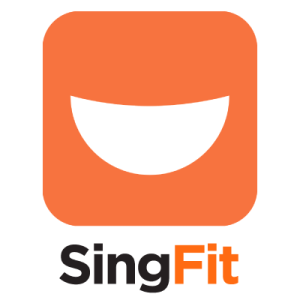
An Equitable ML-based Music Intervention for At-risk Older Adults
Jennifer Rae Myers, Chelsea S. Brown, Musical Health Technologies. This pilot project focused on developing an equitable machine learning (ML)-based music intervention for older adults at risk for Alzheimer’s disease. The study progressed through two phases, beginning with IRB approvals and participant recruitment in mid-2024.

An AI-powered Digital Therapy Assistant for Monitoring and Treating Cognitive Impairment
Jennifer Flexman, Moneta Health. Michael Busa, UMass Amherst. This project will develop AI algorithms used by Moneta™ digital therapy assistant to monitor the speech of individuals with mild cognitive impairment and early dementia during cognitive rehabilitation therapy.

Creation of a technology-ready cohort for patients with Alzheimer’s disease and related dementias and their caregivers
Mark Eldaief, Massachusetts General Hospital. This project will establish a “technology-ready cohort” of individuals with Alzheimer’s Disease and related dementias to support the evaluation of digital assessments relevant to ADRD patients and their caregivers.
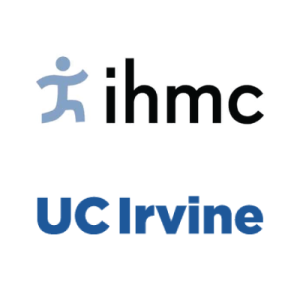
Intelligent Cognitive Assistant for the Individuals with AD/ADRD for Handling Word-finding Difficulty
Archna Bhatia, Institute for Human & Machine Cognition, George Sperling, UCI. This project aims to develop an Intelligent Cognitive Assistant that provides real-time word retrieval support as well as personalized training to enhance word retrieval for individuals with mild cognitive impairment and Alzheimer’s Disease and Related Dementias.

Expanding a Multimodal VR Fitness Platform to Remotely Assess, Monitor, and Report Cognitive and Physical Function for Seniors
Jennifer Stamps and Kyle Rand, Rendever, Inc. This pilot study will evaluate the utility of RendeverFit™, a VR fitness platform, in terms of its acceptance by and relevance to older adults, as well as collect data to support the construction of machine learning models.

Utilizing the Druid Impairment App to Assess and Enhance Senior Adult’s Driving Performance
Micheal Milburn and William DeJong, Impairment Science, Inc. Anuj Pradhan and Shannon Roberts, UMass Amherst. The Druid app uses multiple divided attention tasks to assess cognitive-motor behaviors related to driving. This project aims to validate the Druid app for use by older adults aged 64-85 years.
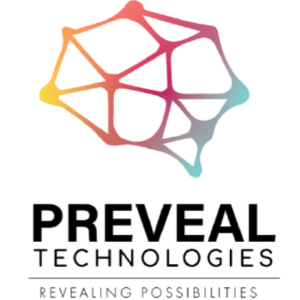
In-home Cognitive Improvement Training using EEG-NFB
Robert Hager, Preveal Technologies, Inc. Hassan Ghasemzadeh, ASU. The Preveal pilot project focused on developing an in-home cognitive improvement system using EEG-based neurofeedback (EEG-NFB) to monitor and enhance working memory in older adults.
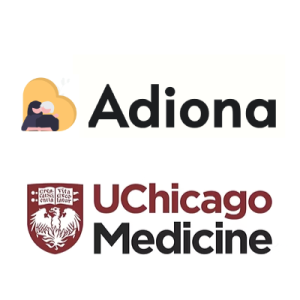
Validating the Apple Watch for Passive Monitoring of Agitation in Patients with Dementia
James Mastrianni, The University of Chicago. Josh Kim, Adiona Health. This project seeks to validate a novel machine learning technique that analyzes motion data from an accelerometer in an Apple Watch to identify the onset of an agitation episode in a person with ADRD.
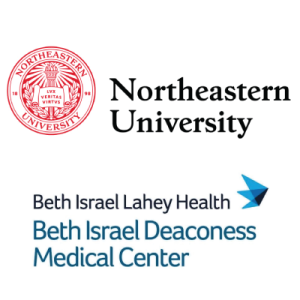
Early acute illness detection in delirium and dementia
Jane Saczynski, Northeastern University. Edward Marcantonio, Beth Israel Deaconess Medical Center. Acute illness presents in the most vulnerable organ in the body, among patients with dementia that organ is the brain and acute illness often presents first as delirium, an acute confusional state. This project will evaluate home monitoring devices as early indicators of acute illness in persons with dementia.

Sensor-guided psychopharmacology in Alzheimer’s disease and related dementias
Ipsit Vahia, McLean Hospital.
Rachel Sava, McLean Hospital. The ADAPT pilot study explored the use of wearable sensor technology to support psychopharmacological care in individuals with Alzheimer’s disease and related dementias.
MassAITC Webinars on Cognitive Function

Past Webinar – Practical Cognitive Assessment Methods for AD/ADRD Research Projects
Abstract: This webinar will examine cognitive assessment methods in Alzheimer’s Disease (AD) and Alzheimer’s Disease-Related Dementias (ADRD) research, featuring insights from neuropsychology, geriatric psychiatry, and digital health technology. Panelists will highlight the challenges of accurate screening across diverse populations and settings, from community-based studies to clinical trials. Presentations will explore traditional tools like the MoCA and CDR alongside emerging digital approaches using speech AI, wearable sensors, and web-based platforms. Discussions will emphasize demographic influences, functional measures, and resource considerations in selecting appropriate screening strategies. Case studies will illustrate lessons learned in real-world pilot projects, including practice effects, scalability barriers, and the integration of cognitive and functional assessments.Attendees will gain a nuanced understanding of current and future cognitive screening tools and how to apply them effectively in research and clinical contexts.
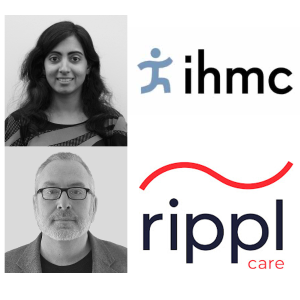
Past Webinar – LLMs for Assistance in ADRD: From Word Retrieval to Caregiver Support, Archna Bhatia and Richard Curtis
Overview: This webinar comprises two presentations by Archie Bhatia from the Institute for Human & Machine Cognition and from Richard Curtis from Ripple Care. They each discuss the work from their MassAITC a2 Pilot awards using LLMs to help with word retrieval for older adults with ADRD and to support ADRD Caregivers. Abstracts: About the Speakers:
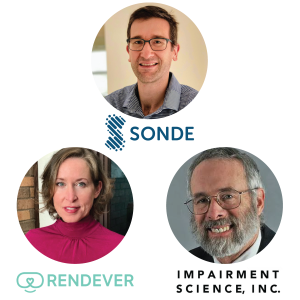
Webinar – Novel Technological Approaches for Detection of Cognitive and Functional Impairment: Drs. Larsen, Stamps, and Milburn
Abstract: This webinar explored cutting-edge technologies aimed at improving early detection and monitoring of cognitive and functional impairments in older adults. Dr. Kate Papp (Mass General Brigham) opened the session by highlighting the challenges of traditional clinical assessments—lengthy, labor-intensive, and inaccessible to many—and the promise of scalable, remote, and ecologically valid digital tools to address the growing needs of an aging population. Three MassAITC pilot awardees presented innovative approaches: A panel discussion with Dr. Rhoda Au (Boston University) addressed barriers to widespread adoption, including data privacy concerns, user acceptability, and integration into clinical workflows. Presenters emphasized the importance of validating these technologies in real-world environments to ensure accuracy, usability, and patient trust. About the Speakers:

Past Webinar – Digital Cognitive Assessments in Preclinical Alzheimer’s Disease, Kate Papp
Abstract: Traditional paper-based cognitive assessments, while the current gold standard in clinical trials for Alzheimer’s disease (AD), lack the sensitivity and ecological validity needed to detect subtle cognitive changes in preclinical stages. Dr. Kate Papp’s work highlights cutting-edge approaches leveraging digital technologies—ranging from AI-analyzed speech and digital pens to ecological momentary assessments and learning curve paradigms. Her team’s development of the Boston Remote Assessment for Neurocognitive Health (BRANCH) demonstrates how multi-day, web-based testing on participants’ own devices can identify diminished learning effects over days—correlating with AD biomarkers and predicting cognitive decline. This talk also addresses validation challenges, participant adherence, and data privacy considerations crucial for adoption in clinical trials. These insights underscore the potential of digital cognitive measures to accelerate early detection, improve trial efficiency, and support Alzheimer’s prevention efforts
